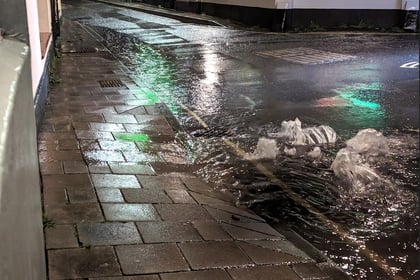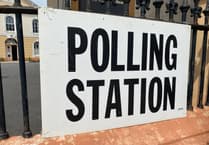South West Water (SWW) is to hike bills by a whopping 23 per cent over the next six years on average amid increasing criticism of the regulator’s ability to rein in firms over sewage spills.
The rise, which will come into effect from April, was approved by regulator Ofwat, ostensibly to help fund much needed infrastructure upgrades and address such issues as sewage spills.
The increase means annual bills will go up on average from £497 to £551 in 2025/26, and to £610 in 2029/2030.
In response, South Devon MP Caroline Voaden called for Ofwat to be scrapped and for a new effective regulator “to hold water companies accountable”.
She said: “This is insulting and a kick in the teeth for customers in South Devon and across the South West Water area who are already enduring a cost-of-living crisis. Coupled with the government’s decision to end its £50 contribution to water bills in the South West, this will hit residents hard.”
She also criticised SWW for failing to invest in fixing leaky infrastructure “whilst executives stuff their pockets with bonuses”.
SWW has outlined plans to invest £2.8 billion from 2025–2030, including upgrading a third of treatment works and building reservoirs, although this would be financed through higher bills.
But Ms Voaden added: “South West Water must outline exactly how this money will be spent, with a detailed investment programme and a timeline of which assets are set to be upgraded. We have repeatedly asked for this information to be shared with bill payers, but to no avail.”
Last week, the UK’s environmental watchdog, the Office for Environmental Protection (OEP), said the Department for Environment, Food and Rural Affairs (Defra), the Environment Agency (EA) and Ofwat had all broken the law by failing to prevent water companies from causing sewage spills.
The UK has a combined sewer system where both waste and surface water go into one pipe. Water firms are meant to activate combined sewer outflows (CSOs) only in exceptional circumstances, such as during unusually heavy rain to prevent flooding, but the OEP said this “has not always been the case”.
The government-run bodies were given two months to “put matters right” and prevent untreated sewage discharges or face possible court action.
The OEP’s rebuke comes just days after South Hams District Council (SHDC) officials attended a county-wide summit where SWW came under fire for its environmental failings, including the frequency of pollution incidents, and for paying dividends and bonuses despite the firm’s poor performance.
The meeting in Exeter brought together delegations from eight district councils, although SWW’s CEO Susan Davy was conspicuous by her absence, sparking criticism from SHDC leader Julian Brazil.
“I am very disappointed the chief executive of SWW, arguably the most crucial stakeholder in these discussions, didn’t attend the summit,” he said.
Regulators and the farm sector’s contribution to water pollution were also discussed, and councillors called for stricter oversight by Ofwat and the Environment Agency (EA), whose funding for enforcement has fallen to 10 per cent compared to 2010 levels.





Comments
This article has no comments yet. Be the first to leave a comment.